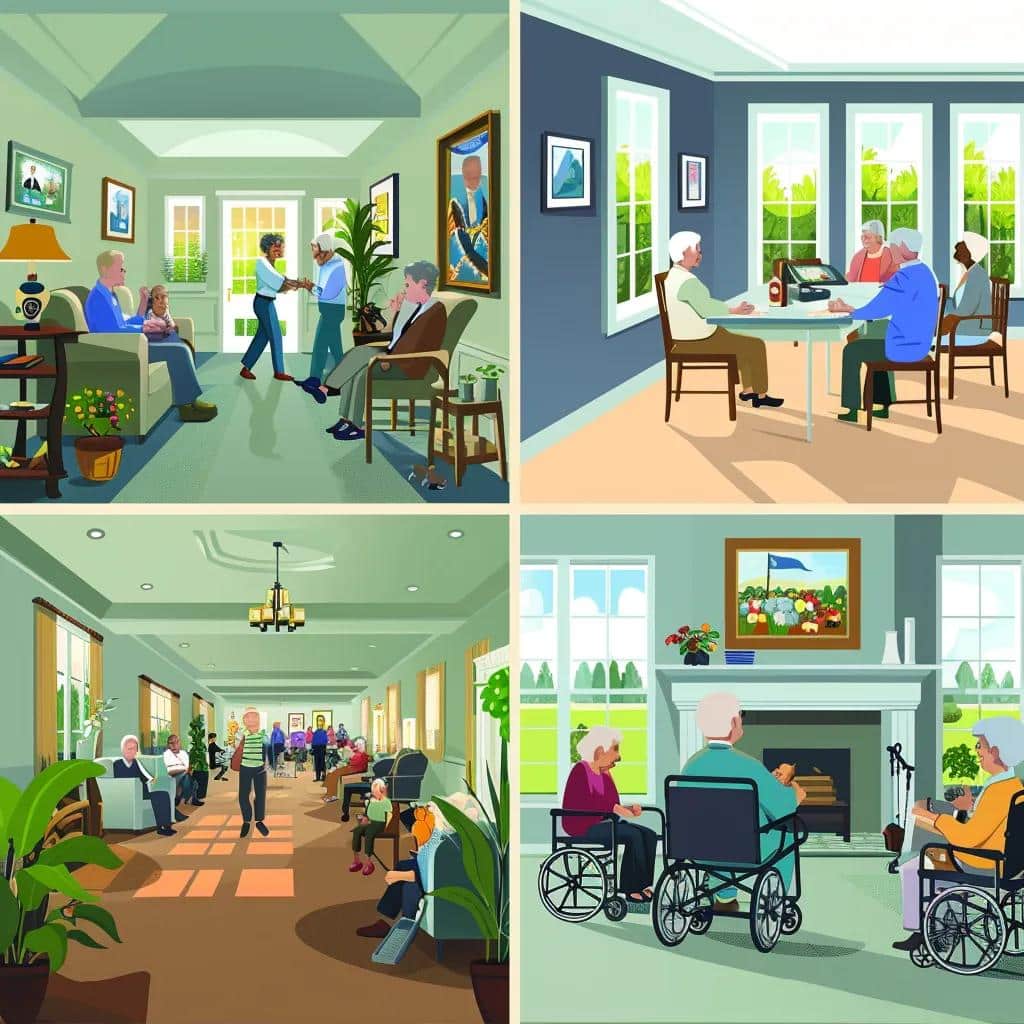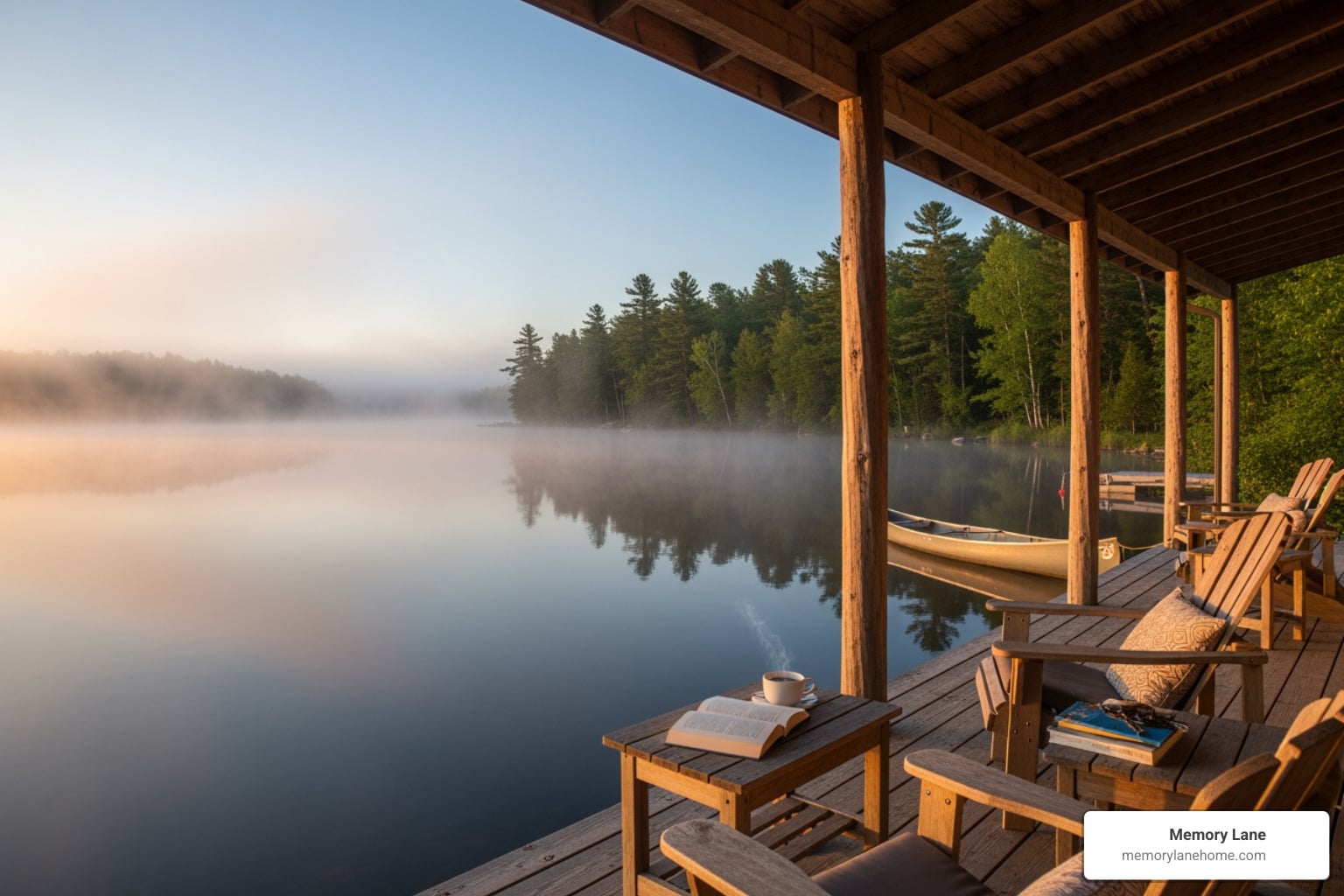Your guide to assisted living Michigan: explore costs, services, financial aid, and top communities for senior care.

Discover Top Memory Care Homes in My Area – Expert Guide
Discover Top Memory Care Homes in My Area – Expert Guide

Dementia Care Homes Near You: A Comprehensive Guide to Finding Memory Care Homes in Your Area

Choosing the right memory care homes in your area ensures your loved one with dementia receives specialized support in a secure, home-like environment. More than 6 million Americans live with dementia, underscoring the importance of understanding memory care services, recognizing when they’re needed, and comparing options. In this guide you’ll discover:
- What memory care is and how it differs from assisted living
- Key signs that indicate a transition to memory care
- A step-by-step process for selecting the best facility
- Cost benchmarks and funding solutions in Ypsilanti and Ann Arbor
- How Memory Lane Home’s personalized approach stands out
- Local resources, community benefits, and family testimonials
By the end, you’ll feel confident identifying dementia care homes near you and supporting your loved one’s needs with compassion and clarity.
What Is Memory Care and How Does It Differs from Assisted Living?
Memory care is specialized residential support designed to promote safety, cognitive engagement, and daily living assistance for individuals with Alzheimer’s disease and related dementias. It integrates therapeutic activities, secure layouts, and staff trained in dementia-focused communication to enhance quality of life. Understanding its distinct features lays the groundwork for informed decision-making about care levels and environments.
What Defines a Memory Care Home?
A memory care home provides a structured routine, tailored cognitive programs, and 24/7 supervision to reduce risks such as wandering and confusion. Care teams design individualized plans that support Activities of Daily Living (ADLs) through evidence-based therapies like music and art, fostering emotional well-being. These specialized services ensure residents maintain dignity and engagement as dementia progresses.
How Is Memory Care Different from Assisted Living?

Memory care prioritizes clinical oversight, secure premises, and dementia-specific staff certifications, whereas assisted living focuses on general support for seniors with minimal cognitive impairment. In memory care, daily schedules revolve around validation therapy, memory exercises, and specialized hygiene assistance to mitigate behavioral issues. This targeted approach delivers greater safety and structure for residents experiencing memory loss.
Memory Care vs. Assisted Living
Memory care homes provide structured routines, specialized cognitive programs, and 24/7 supervision, which differs from assisted living facilities that focus on general support for seniors with minimal cognitive impairment. Memory care prioritizes clinical oversight and dementia-specific staff training to enhance the quality of life for residents with Alzheimer’s disease and related dementias.
This research helps to clarify the distinctions between memory care and assisted living, which is essential for making informed decisions about care levels and environments.
What Are the Key Differences Between Memory Care and Assisted Living?
What Types of Dementia Care Options Are Available?
Families can choose among several dementia care models based on needs and progression stage:
- In-Home Dementia Care: Trained caregivers provide one-on-one support in the familiar home setting.
- Adult Day Programs: Structured daytime supervision with social and cognitive activities, offering family respite.
- Assisted Living with Memory Support: General support plus optional memory-focused programming for early-stage dementia.
- Dedicated Memory Care Communities: Purpose-built facilities featuring secure environments and specialized staff for moderate-to-advanced dementia.
- Skilled Nursing and Long-Term Care: Medical oversight, rehabilitation services, and advanced nursing care for high-acuity residents.
What Are the Signs That a Loved One Needs Memory Care?
Recognizing warning signals early can prevent safety incidents and reduce caregiver strain. Memory care homes intervene with preventive measures and therapeutic engagement tailored to cognitive decline.
What Behavioral and Safety Concerns Indicate Memory Care Is Needed?
Behavioral changes such as frequent wandering, repeated questioning, and uncharacteristic aggression often reflect advancing dementia. Safety risks include forgetting to turn off appliances and neglecting personal hygiene, which can lead to accidents. Addressing these concerns with secure living spaces and constant supervision strengthens resident well-being.
What Are the Top 5 Signs a Loved One Needs Memory Care?
Below are the most common red flags that suggest professional memory support may be necessary:
- Wandering or Getting Lost – Leaving home unsafely without awareness of surroundings.
- Decline in Personal Hygiene – Persistent difficulty managing bathing or dressing routines.
- Repetitive Questions – Continuous questioning that disrupts daily life and caregiving.
- Agitation and Sundowning – Increased confusion or irritability in the late afternoon and evening.
- Poor Nutritional Intake – Forgetting meals or inability to prepare simple foods safely.
These signs indicate a need for structured cognitive care, which can be found in memory care communities designed for dementia safety and engagement.
Signs of Memory Care Need
Recognizing early warning signs, such as wandering, decline in personal hygiene, and repetitive questioning, can prevent safety incidents and reduce caregiver strain. Addressing these concerns with secure living spaces and constant supervision strengthens resident well-being. These signs indicate a need for structured cognitive care, which can be found in memory care communities designed for dementia safety and engagement.
This information supports the article’s discussion on the importance of recognizing the need for memory care and the benefits of early intervention.
How Does Caregiver Burnout Signal the Need for Memory Care?

When family caregivers exhibit chronic fatigue, emotional exhaustion, or strained relationships, it often reflects the demands of unsupervised dementia care. High levels of stress can compromise both caregiver health and resident safety. Memory care homes relieve this burden by offering professional support, structured schedules, and respite services that restore balance to families.
When Should Families Consider Transitioning to a Memory Care Home?
Families should consider a move when home modifications and in-home aides no longer prevent safety incidents or caregiver burnout. A decision framework includes assessing the frequency of behavioral crises, the ability to manage medications and nutrition, and the caregiver’s physical and emotional capacity. Timely transition ensures continuity of care and maximizes resident comfort.
How Do You Choose the Right Memory Care Home Near You?
Selecting a memory care home involves evaluating facility attributes, staff expertise, and therapeutic offerings. A systematic approach empowers families to compare options objectively.
What Are the Essential Questions to Ask Memory Care Facilities?
Before touring, prepare targeted inquiries that reveal care quality and daily operations:
- What staff training and dementia certifications do caregivers hold?
- How is the daily routine structured, and which cognitive therapies are offered?
- What is the protocol for medical emergencies and wandering incidents?
- Can you describe communication processes with families and care plan updates?
- What is included in the monthly fee, and how are additional services billed?
- How do you accommodate residents with advanced behavioral or physical needs?
- What is your staff-to-resident ratio during peak activity hours?
What Are the 7 Essential Questions to Ask When Choosing a Memory Care Facility?
- Do all caregivers receive specialized dementia care training?
- How often are personalized care plans reviewed and updated?
- What secure-access measures prevent wandering?
- Which therapeutic activities support memory and motor skills?
- How are dietary needs and meal plans managed?
- What visiting policies and family engagement opportunities exist?
- What metrics do you track to measure resident satisfaction and safety?
Why Is Staff Training and Caregiver-to-Resident Ratio Important?
Higher caregiver-to-resident ratios ensure personalized attention, rapid response to needs, and reduced staff fatigue. Staff trained in validation techniques, behavior management, and dementia-friendly communication foster trust and reduce agitation. This combination directly improves resident safety and quality of life in a memory care home.
What Safety and Security Features Should You Look For?
- Secure entry/exit controls with alarm systems
- Wander-prevention door locks and monitored walking paths
- Video surveillance in common areas for discreet monitoring
- Emergency call systems in private rooms and bathrooms
How Does Memory Care Compare to Other Senior Care Options?
Memory care homes offer higher levels of structured supervision, specialized therapy programs, and environmental safeguards than assisted living or independent living. Unlike adult day programs, memory care provides 24/7 staffing and personalized care plans. Over skilled nursing, memory care emphasizes cognitive stimulation within a residential setting, balancing medical and psychosocial support.
What Is the Cost of Memory Care in Your Area?
Memory care costs vary by location, level of service, and amenities. Understanding national benchmarks and local rates helps families plan effectively.
What Are the National and Local Average Costs of Memory Care?
Below is an EAV table comparing memory care monthly costs at a national level and in Southeast Michigan.
What Payment Options and Assistance Programs Are Available?
Families often leverage multiple funding sources to manage memory care costs:
- Private Pay: Direct payment from personal savings or income.
- Long-Term Care Insurance: Coverage for daily care costs subject to policy terms.
- Medicaid Waivers: State-specific programs that subsidize memory care expenses.
- Veterans Benefits: Aid and Attendance allowances for eligible veterans and spouses.
What Are the 3 Main Payment Options for Memory Care Costs?
Key funding sources to explore include:
- Private Pay – Immediate access and flexible payment but higher out-of-pocket spending.
- Long-Term Care Insurance – Pre-purchased coverage that may reimburse memory care fees based on policy criteria.
- Medicaid Waivers and Veterans Benefits – Government assistance programs that cover a portion of care costs after eligibility approval.
How Can Families Plan Financially for Memory Care?
A proactive financial roadmap includes assessing current assets, consulting a financial advisor, and exploring benefit programs early in the care journey. Establishing trusts, leveraging reverse mortgages, and applying for veteran or Medicaid aid can preserve savings while ensuring continuous care. Clear budgeting reduces stress and supports uninterrupted services.
What Makes Memory Lane Home Unique in Dementia Care?
Memory Lane Home in Ypsilanti, Michigan, provides six-bedroom ranch houses designed to feel like family homes, combined with a high caregiver-to-resident ratio for individualized attention. Our mission is to deliver person-centered dementia care through trained professionals in a secure, nurturing environment.
How Does Memory Lane Home Provide Personalized Dementia Care?
Every resident at Memory Lane Home receives a customized care plan based on cognitive assessment, personal history, and family input. Care teams incorporate life stories into reminiscence activities, offering genuine emotional connection and purpose. This personalization supports emotional stability and reinforces identity.
What Specialized Programs and Activities Are Offered?
- Music Therapy: Enhances mood and memory recall through familiar songs.
- Art and Sensory Workshops: Stimulates creativity and fine motor skills.
- Garden Walks and Horticulture: Encourages physical activity and relaxation in secured outdoor spaces.
- Cognitive Stimulation Groups: Small-group puzzles, storytelling, and memory games.
How Does Memory Lane Home Support Caregivers and Families?
We offer regular family education sessions on dementia progression, communication strategies, and self-care. Scheduled respite stays allow caregivers to recharge while knowing loved ones are in expert hands. Ongoing support groups create a community of shared experiences and resources.
What Is the Caregiver-to-Resident Ratio at Memory Lane Home?
Our commitment to exceptional care is reflected in a 1:4 caregiver-to-resident ratio during peak hours and 1:6 overnight, significantly higher than industry averages. This staffing model ensures prompt responses, close monitoring, and consistent relationship building with each resident.
Where Can You Find Memory Care Homes in Ypsilanti and Ann Arbor?
Access to local memory care facilities connects families with community resources, healthcare partnerships, and social networks that enrich resident life.
What Are the Benefits of Memory Care in Ypsilanti?
Ypsilanti’s supportive community offers proximity to St. Joseph Mercy Hospital, collaboration with local senior centers, and neighborhood familiarity that comforts residents. Cultural events, parks, and faith-based programs integrate seniors into active community life.
How Does Memory Lane Home Serve the Ann Arbor Area?
Memory Lane Home extends specialized memory care to Ann Arbor families through coordinated transportation, telehealth consultations, and partnerships with geriatric specialists at the University of Michigan. This network ensures seamless medical oversight and continuity of cognitive therapies.
What Local Resources and Healthcare Networks Support Memory Care?
- St. Joseph Mercy Hospital geriatric unit
- Washtenaw County Aging Services Agency
- Local Alzheimer’s support groups
- University of Michigan Memory and Aging Center
What Do Families Say About Their Experience with Memory Lane Home?
Family testimonials highlight the emotional relief, safety, and dignity their loved ones regain through specialized care at Memory Lane Home.
What Are Common Themes in Resident and Family Testimonials?
- Trust and Transparency: Families praise clear communication and care plan updates.
- Personal Connection: Loved ones respond positively to staff who know their life stories.
- Improved Well-Being: Noticeable reduction in anxiety and behavioral challenges.
How Do Success Stories Illustrate the Impact of Personalized Care?
One family observed their mother’s mood lift after joining music therapy sessions that played her favorite childhood tunes. Another caregiver reported restored sleep patterns and reduced nighttime agitation for their spouse after secure landscaping and consistent routines were implemented. These successes demonstrate how tailored programs transform daily life.
Our comprehensive guide has outlined what memory care entails, how to recognize the right time for transition, and the criteria for selecting a facility. We’ve explored cost frameworks, funding strategies, and the unique advantages of Memory Lane Home’s person-centered model in Ypsilanti and Ann Arbor. By understanding these elements and leveraging community resources, families can confidently choose a memory care home that prioritizes safety, engagement, and individualized support. When you’re ready to explore memory care options and schedule a tour, Memory Lane Home’s dedicated team is here to assist you every step of the way.
Frequently Asked Questions
What Should Families Consider When Visiting Memory Care Facilities?
When visiting memory care facilities, families should observe the environment, staff interactions, and resident engagement. Look for cleanliness, safety features, and the overall atmosphere. Pay attention to how staff communicate with residents and whether they seem attentive and compassionate. Additionally, inquire about the daily schedule and activities offered, as well as how the facility accommodates individual needs. This visit is crucial for assessing whether the environment aligns with your loved one’s requirements and comfort level.
How Can Families Support a Loved One Transitioning to Memory Care?
Supporting a loved one during the transition to memory care involves open communication and reassurance. Discuss the move positively, emphasizing the benefits of specialized care and social engagement. Familiarize them with the new environment by visiting together before the move. Encourage participation in activities and social events to foster connections with staff and other residents. Regular visits and maintaining family routines can also help ease feelings of anxiety and promote a sense of stability during this significant change.
What Role Do Family Members Play in Memory Care?
Family members play a vital role in memory care by providing emotional support and maintaining connections with their loved ones. They can participate in care planning by sharing insights about the resident’s history, preferences, and needs. Regular visits help reinforce relationships and provide comfort. Families can also engage in educational opportunities offered by the facility to better understand dementia and effective communication strategies. This involvement enhances the overall care experience and fosters a collaborative approach to support.
What Are the Benefits of Specialized Memory Care Programs?
Specialized memory care programs offer tailored activities and therapies designed to enhance cognitive function and emotional well-being. These programs often include reminiscence therapy, music and art activities, and cognitive stimulation exercises that cater to the unique needs of individuals with dementia. The structured environment promotes safety and reduces anxiety, while trained staff provide support and understanding. Overall, these programs aim to improve quality of life, maintain dignity, and foster a sense of community among residents.
How Can Families Evaluate the Quality of Care in Memory Care Homes?
Evaluating the quality of care in memory care homes involves several factors. Families should assess staff qualifications, including training in dementia care and the caregiver-to-resident ratio. Observing interactions between staff and residents can provide insights into the level of compassion and engagement. Additionally, reviewing facility policies, safety measures, and resident satisfaction surveys can help gauge the overall quality of care. Engaging with current residents’ families for their feedback can also offer valuable perspectives on the facility’s strengths and weaknesses.
What Are the Common Misconceptions About Memory Care?
Common misconceptions about memory care include the belief that it is only for individuals in advanced stages of dementia or that it is akin to a nursing home. In reality, memory care is designed for various stages of cognitive decline and focuses on enhancing quality of life through specialized support and activities. Another misconception is that memory care homes lack a homelike atmosphere; many facilities prioritize creating a warm, inviting environment that fosters community and engagement among residents.
How to Find the Best Memory Care Homes Near You: Your Complete Guide
Finding the right memory care home is essential for ensuring your loved one receives the specialized support they need in a safe and nurturing environment. By understanding the key differences between memory care and assisted living, as well as recognizing the signs that indicate a transition is necessary, families can make informed decisions. Memory Lane Home stands out with its personalized approach and commitment to enhancing the quality of life for residents. When you’re ready to explore memory care options, reach out to our dedicated team to schedule a tour and discover how we can support your family.


